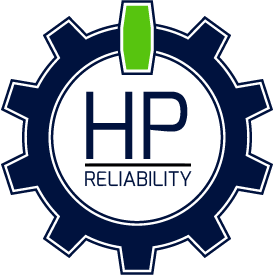How Ethics Influence The Reliability of The Plant
 Ask almost any maintenance professional in your operation what they think about ethics. Chances are the answers will not have anything to do with their job and their role in maintaining equipment.
Ask almost any maintenance professional in your operation what they think about ethics. Chances are the answers will not have anything to do with their job and their role in maintaining equipment.
Ethics play an important role in many professions, such as doctors, engineers, lawyers, etc. Ethics are not typically thought of in maintenance, but in reality, ethics does have a place in maintenance. To understand where ethics fit into maintenance, you first have to understand ethics.
What is Ethics?
Ethics is the study of what is right and wrong. Often, this is not approached from a moral point-of-view. Instead, we might even say that ethics is the study of what is just. Being able to discern what is ethical from a logical standpoint is important for those in business, lawyers, doctors, and maintenance.
Those in maintenance must also be able to discern what is right and wrong when it comes to business practices and when it comes to protecting workers and the organization.
Why Are Ethics Required in Maintenance?
The decision made by maintenance staff have the ability to impact organizations and people in many different ways. From premature failure to lost production, to the loss of life. The decisions made today can have everlasting consequences.
To reinforce this, let’s look at a dilemma faced by maintenance staff. A piece of equipment fails and the operations group is pushing maintenance to fix the problem as quickly as possible. A mechanic could have a few options at this point.
- Take the time to diagnose the issue, determine the root cause and perform a repair that ensures the issue is resolved. This will take 4 hours.
- Address the symptoms, perform a repair, test the equipment and return the equipment to operation in 1 hour, knowing the issue may not be solved.
The mechanic chooses option 2 and quickly returns the equipment back to operation. He is praised by operations for the quick return to operation. An hour later the symptom appears again… Now stop and think. What impact does this have? You may be thinking that it is not an issue as the equipment was repaired quickly.
Well, that piece of equipment was an aircraft with your family onboard. You probably have a different opinion now right? Thankfully in aviation, there are safeguards to prevent this, but in most industries there aren’t
Take for example the same situation at a chemical plant, but instead, the repair is on a valve. The valve is just replaced without understanding what the root cause is because operations need the tank back ASAP. As a result, there is a leak and poisonous gas drifts down the block to a school, or there is a discharge into a river where you fish.
In situations with consequences that are not as severe, the result may be multiple downtime events with compounding failures. The result is a net loss of profit for the month.
Now you can see the importance of ethics in maintenance.
Does Your Maintenance Staff Have a Code of Ethics?
You don’t need to ask your staff if they have a code of ethics, just observe their actions. Do they take the time to diagnosis, identify the root cause of the issue and make a permanent repair? Look at replacing a belt, do they loosen up the adjustment bolts, bring the pulleys together, install the new belt, then align and tension the belt? Or do they just roll a new belt over the pulleys because it is quicker?
Observing this will tell you if the ethics are present. Another way is to think, do you receive feedback from operations that so and so always takes his time and his repairs take longer? But when so and so works on it, it does fail again? If so, he has a code of ethics.
If your maintenance staff consists of Professional Engineers, or CMRPs/CMRTs, chances are they have a code of ethics. They may not be aware of it, but they do. For those that are not a certified professional, it typically comes down to personal beliefs.
Establish a Code of Ethics
So what do you do about those individuals without a strong personal ethic, or those bound by professional bodies? Establish a code of ethics for your maintenance department.
There are many case studies and ***resources on ethics*** available to assist with establishing a code of ethics. But this may be too much theory for your maintenance staff. You could host a simple meeting with your staff and ask the difference between right and wrong and lead the conversation towards the applications of maintenance. By doing this, establish a few high-level principles with the team. The principles may simply be;
- All repairs will be made when the root cause is identified, not before
- Production needs will not supersede a proper repair
- Safety and Environmental needs will take precedence over production requirements
- Only the proper tools and parts will be used for repairs
Once these have been refined, put the principles on a sheet and have each mechanic sign it. Post it somewhere that is highly visual where the mechanics and operations team will see it daily. It may take a bit of time and coaching, but in time, the mechanics will come to adopt the code of ethics.
The decisions made by your maintenance staff have the ability to impact not just the profitability of the organization, but the people in the organization, and the surrounding community. So I must ask, do you have a code of ethics for your team? How can ethics maintenance impact your operation and the surrounding community? Do you feel comfortable with your maintenance team operating without a code of ethics?
Remember, to find success, you must first solve the problem, then achieve the implementation of the solution, and finally sustain winning results.
I’m James Kovacevic
Eruditio, LLC
Where Education Meets Application
Follow @EruditioLLC
[/fusion_builder_column][/fusion_builder_row][/fusion_builder_container]




Thanks for sharing very good article, fully agreed. This should come from top management, in present style of working, I found production team always dominate over maintenance Team, also we are setting KPI’s in terms of breakdown hrs instead of MTBF. Nobody ask to do temporary solution but still we are doing some of the times due to the excess pressure of production / management.
How we can able to convince we don’t know, Also it seems to caste pearls before sign. As senior management they are not able to understand the severity, they don’t think about long term perspective & use to pass their tenure not think about the Company owner who had invested the amount
This is pressurised situation as no one owns this temporarily correction neither the doer nor the management, As management will rough their hands as they had never said openly do temporary solution.
Please share more such articles as this is the voice of maintenance person from the depth of heart